stocks for the long term
description: an investment strategy that recommends holding equities for significant periods of time to leverage the benefits of compound growth and reduce impact of volatility
9 results
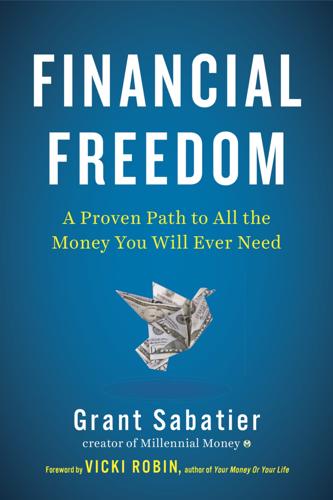
Financial Freedom: A Proven Path to All the Money You Will Ever Need
by
Grant Sabatier
Published 5 Feb 2019
If you hold them for longer than a year before you sell them, then you will get taxed at the capital gains rate (see the table above), which is typically lower than your income tax rate. A quick note on selling versus withdrawing: In a taxable account, you get taxed when you sell even if you don’t withdraw the money, but in a tax-advantaged account, you get taxed only after you sell and withdraw. Yet another reason why you should be holding stocks for the long term: If you can keep your taxable income below $75,900 if you are married or $37,950 if you are single, then you won’t pay any tax on your investment withdrawals from your taxable accounts. No taxes. This is one of the massive benefits of keeping your income low (or at least mastering your tax deductions).
…
As you’ve already learned, because of the 1031 exchange rule, you can keep rolling over your profits tax-free by using them to buy new properties. Or you can flip your way into larger and larger homes so you can buy your dream home. You can also flip your way into buying a multi-unit property or apartment building that you can then hold and rent out. Just like buying and holding stock for the long term, buying and holding real estate is a more effective strategy than flipping to help you reach financial independence faster, since you can build up a portfolio that generates consistent monthly cash flow through rental income that can cover your mortgage debt and monthly expenses, as well as have a portfolio of assets that will also appreciate over time.
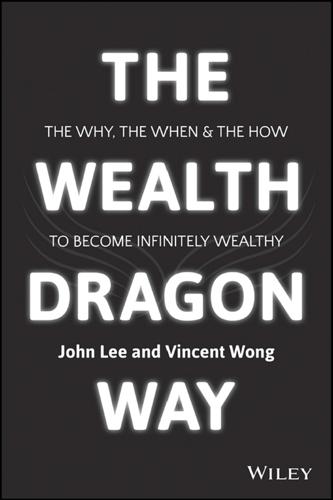
The Wealth Dragon Way: The Why, the When and the How to Become Infinitely Wealthy
by
John Lee
Published 13 Apr 2015
It makes sense to apply this tactic to buying property. But there's an even bigger advantage with property. Property is the most leveraged investment you can make. The difference between buying stocks and investing in property is that you can borrow most of the money to buy property. If you want to invest £100,000 in stocks for the long term, you need to find that £100,000. If you want to buy a property for £100,000, all you need is £20,000—and you can more or less guarantee that the bank will lend you the rest. If the company you bought shares in went bust, you would lose your entire £100,000. If your house fell down or got blown away in a freak storm, you would only lose £20,000.
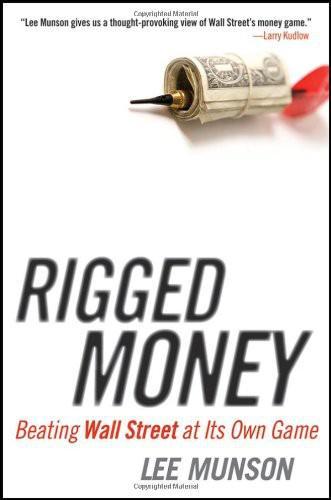
Rigged Money: Beating Wall Street at Its Own Game
by
Lee Munson
Published 6 Dec 2011
Really, we make no money and what can you tell someone who wants you to look at their portfolio and tell them all of their initial ideas are great and not touch them? I have had some of these clients and they confuse me. I had a client who bought Citigroup all the way back when it hit the skids in 1994 for a few bucks after double-digit decline over the prior year. He bought the stock for the long term. After an 800 percent increase in value, the end of 2007 brought with it a serious decline in a few banking stocks, Citigroup being one of them. I suggested he let some loose. Why? He was sure that a short-term movement didn’t mean anything. As the losses piled up and the picture looked worse, I kept suggesting that he reallocate the money, or even buy a banking index to diversify the pain.
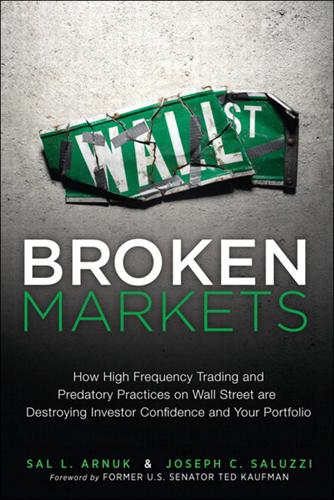
Broken Markets: How High Frequency Trading and Predatory Practices on Wall Street Are Destroying Investor Confidence and Your Portfolio
by
Sal Arnuk
and
Joseph Saluzzi
Published 21 May 2012
Investors will start to pile back into stocks because they will believe that markets are properly valuing securities and that their orders are not bait for ultra-high-speed traders. Research and stock picking will become relevant again as margin returns to brokers who deploy capital toward the valuation of stocks for the long term. Correlation among assets will fall to more normalized levels as investors focus on individual companies, instead of mindless ETF tracking devices. Ultimately, capital will find its way back to innovative, job-creating companies. A fantasy? No. It’s all up to you. Fight for Your Rights If you’ve read this book up to this point, chances are you are as outraged as we are and want to know what you can to do protect yourself.
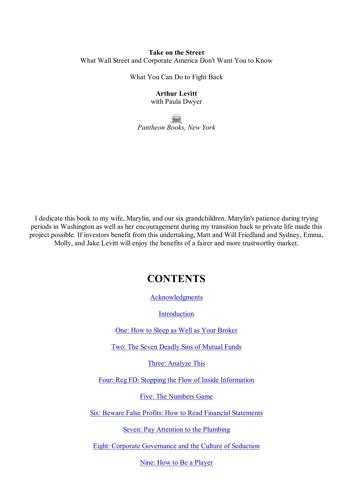
file:///C:/Documents%20and%...
by
vpavan
They are a good way to start your own research, but consider them just one more piece of information. Never buy a stock based solely on an analyst's recommendation. Instead, ask yourself: Is the stock right for me because it helps diversify my portfolio, or because it helps me meet an asset allocation goal? Am I expecting to hold the stock for the long term? Do I understand the company, and why I'd like to own it? Do I understand it well enough to know why I might want to sell the stock, beyond a short-term failure to meet analysts' expectations? Answering these questions in the affirmative is enough to justify owning a stock— far more than any analyst's say-so.
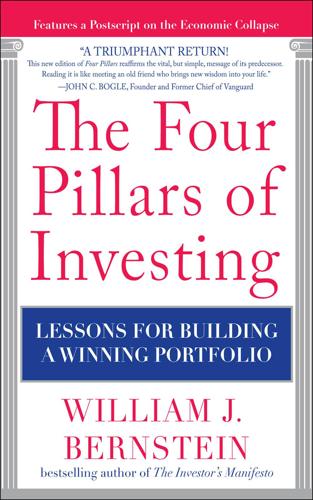
The Four Pillars of Investing: Lessons for Building a Winning Portfolio
by
William J. Bernstein
Published 26 Apr 2002
Examining historical returns and imagining losing 50% or 80% of your capital is like practicing an airplane crash in a simulator. Trust me, there is a big difference between how you’ll behave in the simulator and how you’ll perform during the real thing. During bull markets, everyone believes that he is committed to stocks for the long term. Unfortunately, history also tells us that during bear markets, you can hardly give stocks away. Most investors are simply not capable of withstanding the vicissitudes of an all-stock investment strategy. The data for the U.S. markets displayed in Figures 1-9 to 1-14 are summarized in Table 1-1.
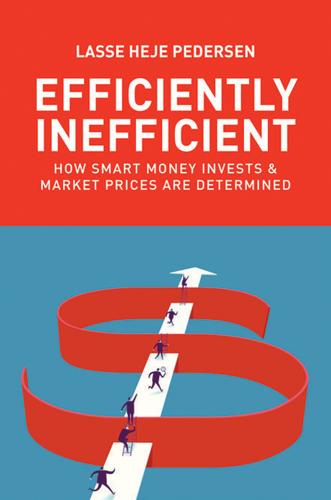
Efficiently Inefficient: How Smart Money Invests and Market Prices Are Determined
by
Lasse Heje Pedersen
Published 12 Apr 2015
Furthermore, they study the accounting numbers, trying to assess their reliability and to estimate future cash flows. Equity long–short managers mostly bet on specific companies, but they can also take views on whole industries. Some equity managers, called value investors, focus on buying undervalued companies and holding these stocks for the long term. Warren Buffett is a good example of a value investor. Implementing this trading strategy often requires being contrarian, since companies only become cheap when other investors abandon them. Hence, cheap stocks are often out of favor or bought during times when others panic. Going against the norm is harder than it sounds, as traders say: It’s easy to be a contrarian, except when it’s profitable.
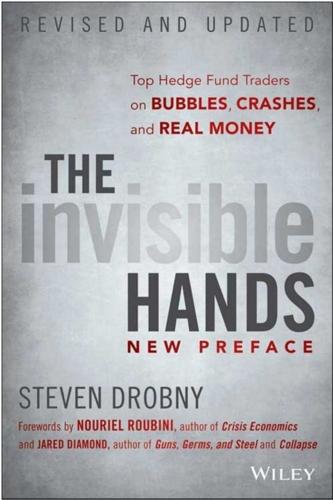
The Invisible Hands: Top Hedge Fund Traders on Bubbles, Crashes, and Real Money
by
Steven Drobny
Published 18 Mar 2010
While the debate over who or what deserves blame will likely rage for decades, the world has not ended and investors must now adapt and adjust to the new reality. The crisis of 2008 has called many investment mantras into question—notably the Endowment Model (diversifying into illiquid equity and equity-like investments) and others including stocks for the long term, buy the dip, buy and hold, and dollar cost averaging—yet no new model has taken root. The crisis of 2008 did, however, supply the financial community with an abundance of new information with regards to portfolio construction, in particular around risk, liquidity, and time horizons. After such an extreme year in the markets, reactions in the real money world have been polarized: some have learned valuable lessons and are incorporating them in their approach, whereas others are operating as if it is business as usual, completely dismissing 2008 as a one-in-a-hundred-year storm that has passed.
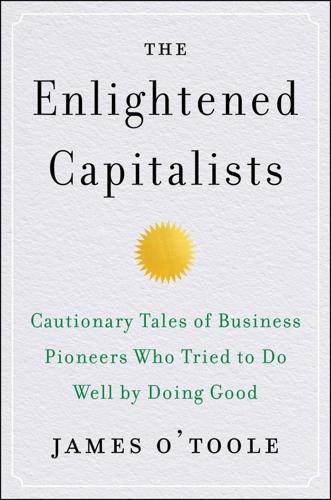
The Enlightened Capitalists
by
James O'Toole
Published 29 Dec 2018
“In sum,” as Bob Haas explained to me some thirty-two years after our first discussion, “we were pinched from above and below: ‘The Jaws of Death,’ as a former Levi’s executive dubbed it.” Moreover, as all those untoward changes were occurring, the character of Wall Street was being transformed. Once home to patient investors who held stock for the long term, now it was the domain of restless speculators demanding high (and quick) financial returns from companies they assumed they “owned.” In effect, Wall Street had come to expect exactly what Levi Strauss was unable to deliver in the early 1980s—high quarterly profits—and that failure caused Levi’s investors to demand drastic changes in the corporation’s strategy, practices, products, and governance.